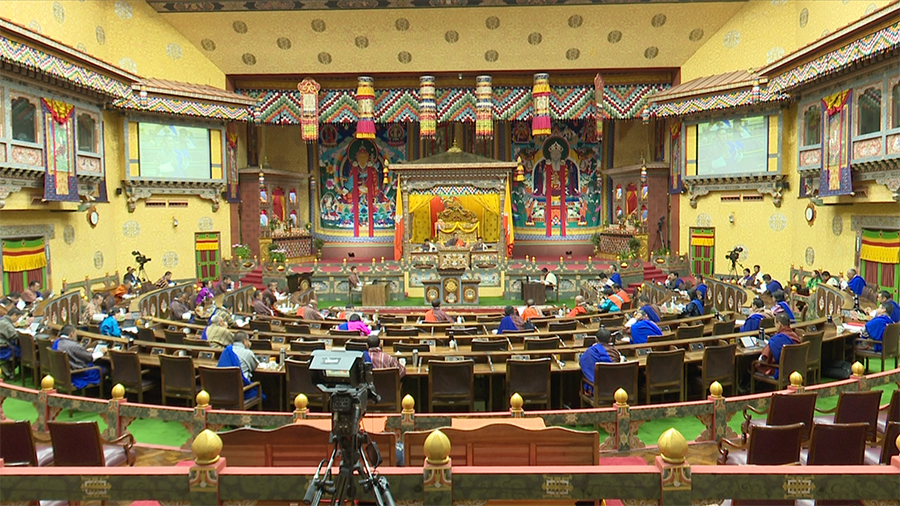
Can the agreement on the movement of Traffic-in-Transit between Bhutan and Bangladesh weigh heavy on the country’s environment, culture and society in future? This was one of the concerns shared by some members of the national assembly during the deliberations on the agreement in the house today. The transit agreement aims to establish a comprehensive framework to enhance connectivity between Bangladesh and Bhutan through various modes of transportation such as road, rail, air, river and coastal waterways.
As the deliberations on the agreement on the movement of Traffic-in-Transit between Bhutan and Bangladesh continued in the house, a few members shared their concerns. They said the transit agreement could result in the country being overwhelmed by vehicles and people from other countries in the future.
“For now, the agreement allows the big trucks from Bangladesh to travel only till border areas. But in future, there could be a few cases where the big trucks have to enter the country for various genuine reasons,” said Dorji Wangdi, Opposition Leader.
“The agreement will benefit us a lot as it will help us receive various goods from other countries. But at the same time, the agreement will also make it possible for other countries to send their goods from Bangladesh to Bhutan and to various other countries,” said Passang Dorji (PhD), Bartsham-Shongphu MP.
However, the minister for industry, commerce and employment and the Prime minister assured there will be no such problems.
“Besides benefiting us, I don’t think the agreement will have any negative impact on our country. Their vehicles will not be allowed to enter our country and goods transferred via air will have to follow all protocols and rules involved in shipping by air,” said Karma Dorji, Minister for Industry, Commerce and Employment.
“Since Bhutan is a small country and it does not have big proper roads like in other countries, the Bangladesh government has been kind enough to agree on the matter to bring their big trucks only till the designated entry and exit point. But our Bhutanese trucks can enter Bangladesh easily,” said Dr Lotay Tshering, Prime Minister.
While Bangladesh will designate 15 points of entry and exit, Bhutan shall designate 8 entry and exit points from Samdrup Jongkhar, Gelephu, Phuentshogling, Samtse, Pelzomthang, Gomtu, Paro International Airport and Gelephu Airport as per the agreement.
Likewise, additional points of entry and exit, including land ports, sea ports, airports and river ports maybe added or discontinued through mutual agreement.
Besides having provisions for amendments of the agreement, the agreement also allows both parties to withdraw at any time.
The house will adopt the agreement tomorrow.
Passang Dorji and Singye Dema
Edited by Yeshi Gyaltshen







